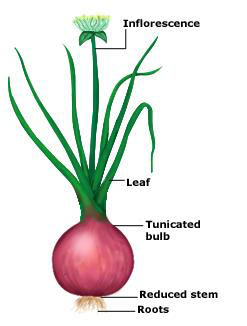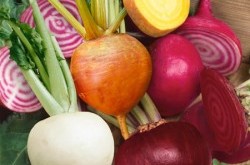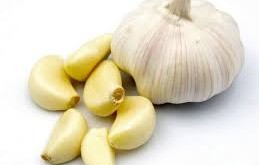

Quranic reference of onion
Prophet صلی اللہ علیہ وسلم’s guidance about onions (البصل)
1. Hazrat Aisha رضي الله عنها was asked by Ibn Ziyaad Khiyar رضي الله عنه about onion (basal) (البصل) & she said that the last meal which Rasool Allah صلی اللہ علیہ وسلم ate, had Onion (Basal) (البصل) in it. : Reference Abu Dawud: 3829; Book no. 28; In English Book no. 27; Hadees no. 3820.
2. Jabir Bin Abdullah رضي الله عنه reported that Nabi صلی اللہ علیہ وسلم said, He who eats of this (offensive) plant, i. e garlic, and sometimes He صلی اللہ علیہ وسلم said, He who eats onion (بصل) and garlic and leek (الكراث), should not approach our mosque for the angels are harmed by the same things as the children of Adam. : Reference Muslim: 564 B; Book no. 5; In English volume no. 4, Hadees no 1147.
3. Hazrat Abu Saeed Al Khudri رضي الله عنه says that Nabi صلی اللہ علیہ وسلم disallowed to eat Onion (البصل), garlic (الثوم), gundan (الكراث) (wild onion). : Reference Tyasi: 2285. (Raw is disliked to eat, but we can use them in cooked food).
4. Narrated Jabir Bin Abdullah رضي الله عنه said, that Nabi صلی اللہ علیہ وسلم said “Whoever has eaten garlic (ثوم) or onion (بصل), should keep away from us, or should keep away from our mosque and should stay at home.” Ibn Wahb said, “Once a plate full of cooked vegetables was brought to the Nabi صلی اللہ علیہ وسلم at Badr. Detecting a bad smell from it, He صلی اللہ علیہ وسلم asked about the dish and was informed of the kinds of vegetables in contained. He صلی اللہ علیہ وسلم then said, “Bring it near,” and so it was brought near to one of his companions who were with him. When Nabi صلی اللہ علیہ وسلم saw it, He صلی اللہ علیہ وسلم disliked eating it and said (to his companion), “Eat, for I talk in secret to ones whom you do not talk to”. : Reference Bukhari : 7359; Book no. 96; In English volume no. 9; Book no. 92; Hadees no. 458. (Means talk to angels).
5. Jabir Bin Abdullah رضي الله عنه reported that Nabi صلی اللہ علیہ وسلم said, He who eats of this (offensive) plant, i. e garlic, and sometimes He صلی اللہ علیہ وسلم said: He who eats onion (بصل) and garlic and leek (الكراث), should not approach our mosque for the angels are harmed by the same things as the children of Adam. : Reference Muslim: 564 B; Book no. 5; In English volume no. 4, Hadees no 1147.
6. Rasool Allah صلی اللہ علیہ وسلم allowed us to eat onion (البصل) & garlic (الثوم) cooked in food. (Means avoid eating them raw). : Reference Abu Dawud: 3827; Book no. 28; In English Book no. 27; Hadees no. 3818.
7. Hazrat Uqbah Bin Amir Al-Juhani رضي الله عنه says that Nabi صلی اللہ علیہ وسلم said ‘Do not eat onions (بصل),’ then he said in a low voice: ‘Raw’. : Reference Ibn Ma-jah: 3491; Book no. 29; In English volume no. 4, Book 29, Hadees no 3366.
8. Narrated Mu’awiyah Ibn Qurrah رضي الله عنه that Nabi صلی اللہ علیہ وسلم forbade these two plants (i.e. garlic and onions), and said, He who eats them should not come near our mosque. If it is necessary to eat them, make them dead by cooking, that is, onions and garlic. : Reference Abu Dawud: 3827; Book no. 28; In English Book no. 27; Hadees no. 3818.
9. Narrated by Hazrat Ma’daan Bin Abi Talha Ya’mir رضي الله عنه once Hazrat Umar Bin Khattab رضي الله عنه in Friday khutba said that if you want to eat garlic (ثوم), onion (بصل), use them in cooked food (means avoid them eating raw & coming in public & also avoid there bad smell in breath or mouth). (This is a long Hadees). : Reference Ibn Ma-jah: 3488; Book no. 29; In English volume no. 4 Book 29, Hadees no 3363.
Content of it
Scientific benefits of Onions
Contra-indications
Do not use in diarrhea. Bleeding disorders, Namaz time (Salah time). Do not use it in weak sex.
Science & Hadees regarding onion
Adverse effects and toxicology
3. If excessive raw onion is used some people may suffer from allergic reactions & also after handling onions. Symptoms can include contact dermatitis, intense itching, rhinoconjunctivitis, blurred vision, bronchial asthma, sweating and anaphylaxis. The toxicity is caused by the sulfoxides present in raw onions, causing ingestion resulting in anaemia caused by the distortion and rupture of red blood cells. (This is based on an animal’s research done by using onion.
 The Tibb-e-Nabvi The Tibb-e-Nabvi
The Tibb-e-Nabvi The Tibb-e-Nabvi



